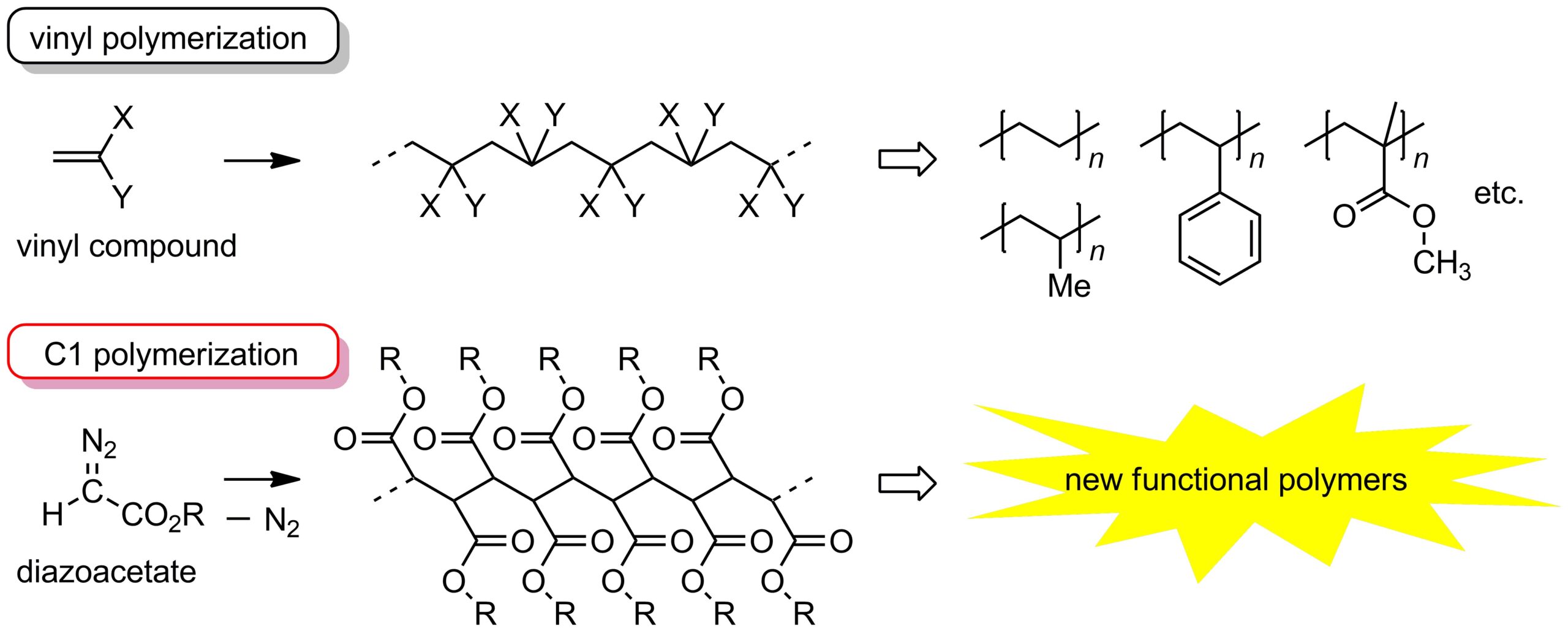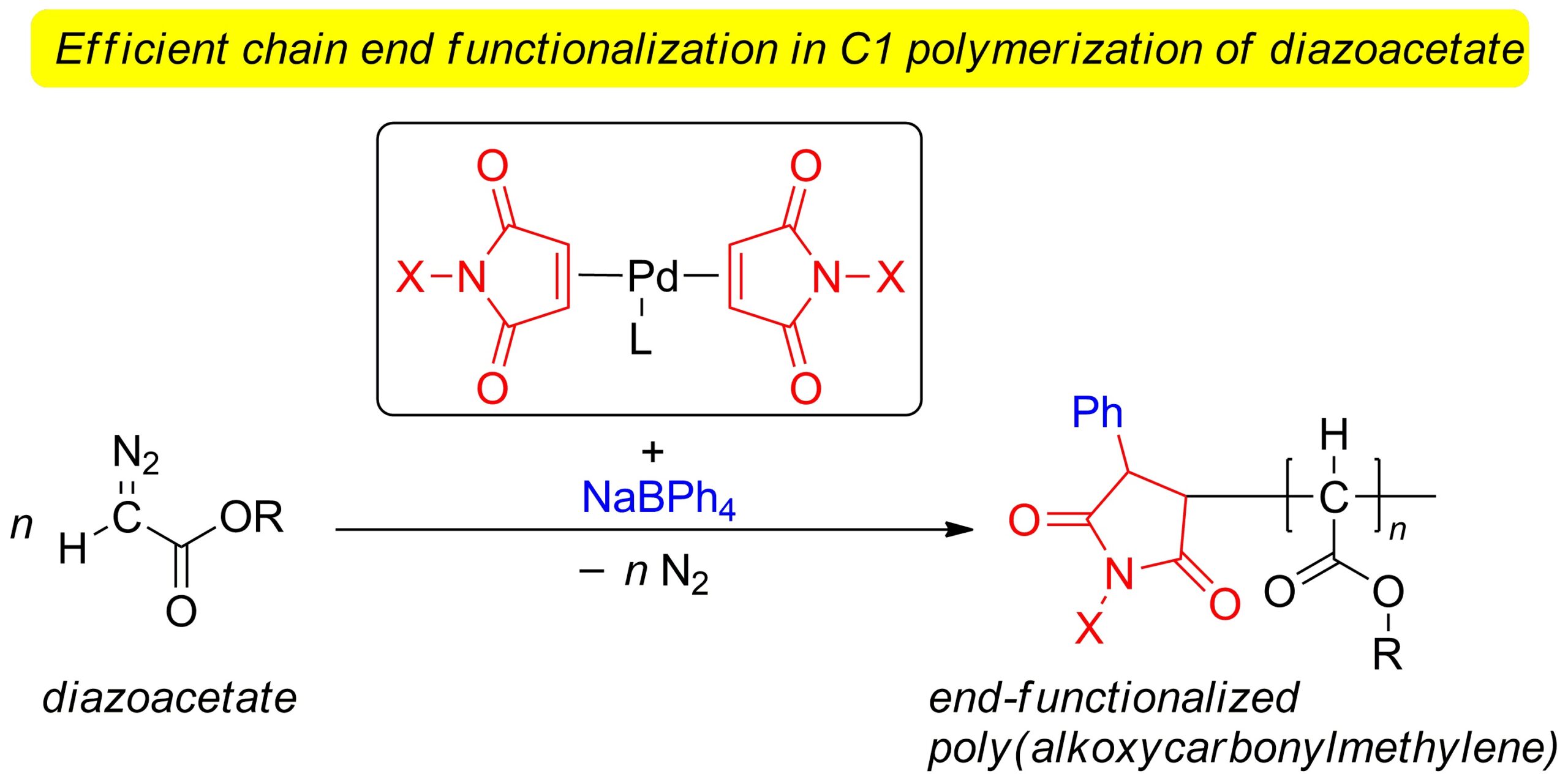Development of new end-functionalization technique in polymer synthesis
Development of new end-functionalization technique in polymer synthesis
The research team directed by H. Shimomoto and E. Ihara in Ehime University successfully developed a new Pd-based initiating system affording carbon–carbon main chain polymers bearing end-functional groups. The achievement will contribute to progress in the field of polymer chemistry and will allow us to develop new types of functional polymers.
Vinyl polymerization (polymerization of vinyl compounds) is a useful method for preparing sp3-carbon based main chain polymers including commodity plastics, where the polymer backbone is constructed from a two carbon unit derived from vinyl groups of monomers. In contrast, polymerization of diazo compounds can construct the polymer backbone from one carbon unit, also giving sp3-carbon based main chain polymers. For the latter C1 polymerization system, diazoacetates are one of suitable monomers, producing polymers with an alkoxycarbonyl group (ester) on each main chain carbon atom [poly(alkoxycarbonylmethylene)s].
In this study, we have successfully developed a new initiating system for the polymerization of diazoacetates. More specifically, we have demonstrated that the newly prepared Pd(0) complexes bearing N-arylmaleimide as a ligand in conjunction with a borate such as NaBPh4 are effective for polymerization of diazoacetates to yield polymers in good yield; in particular, the polymerization proceeds in a highly uniform manner with respect to initiation, propagation, and termination. The most remarkable feature we found about the initiating system [Pd(N-arylmaleimide)/NaBPh4] is that an N-arylmaleimide molecule originally coordinated on the Pd center was incorporated into the α-chain end of the resulting polymer almost quantitatively. Accordingly, the initiating system will enable us to introduce a variety of functional groups at the α-chain end of poly(alkoxycarbonylmethylene)s by using N-substituted maleimide bearing a (protected) functional group. These new findings described here will contribute to broadening the generality and utility of diazoacetate polymerization, which has been gaining importance as a useful method for preparing sp3-carbon based main chain polymers.
Bibliographic Information
Polymerization of Diazoacetates Initiated by the Pd(N-arylmaleimide)/NaBPh4 System: Maleimide Insertion into a Pd–C Bond Preceding to Initiation Leading to Efficient α-Chain-End Functionalization of Poly(alkoxycarbonylmethylene)s
Hiroaki Shimomoto,* Hinano Hayashi, Kyoka Aramasu, Tomomichi Itoh, and Eiji Ihara*
Macromolecules, 2022, 55, 5985–5996
DOI: 10.1021/acs.macromol.2c00508
Fundings
- Japan Society for the Promotion of Science (JSPS) KAKENHI Grant Number JP16K17916, JP18H02021, JP19K05586, and JP19K22219
Media
Contact Person
Name : Hiroaki Shimomoto
Phone : +81-89-927-9949
E-mail : shimomoto.hiroaki.mx@ehime-u.ac.jp
Affiliation : Graduate School of Science and Engineering


